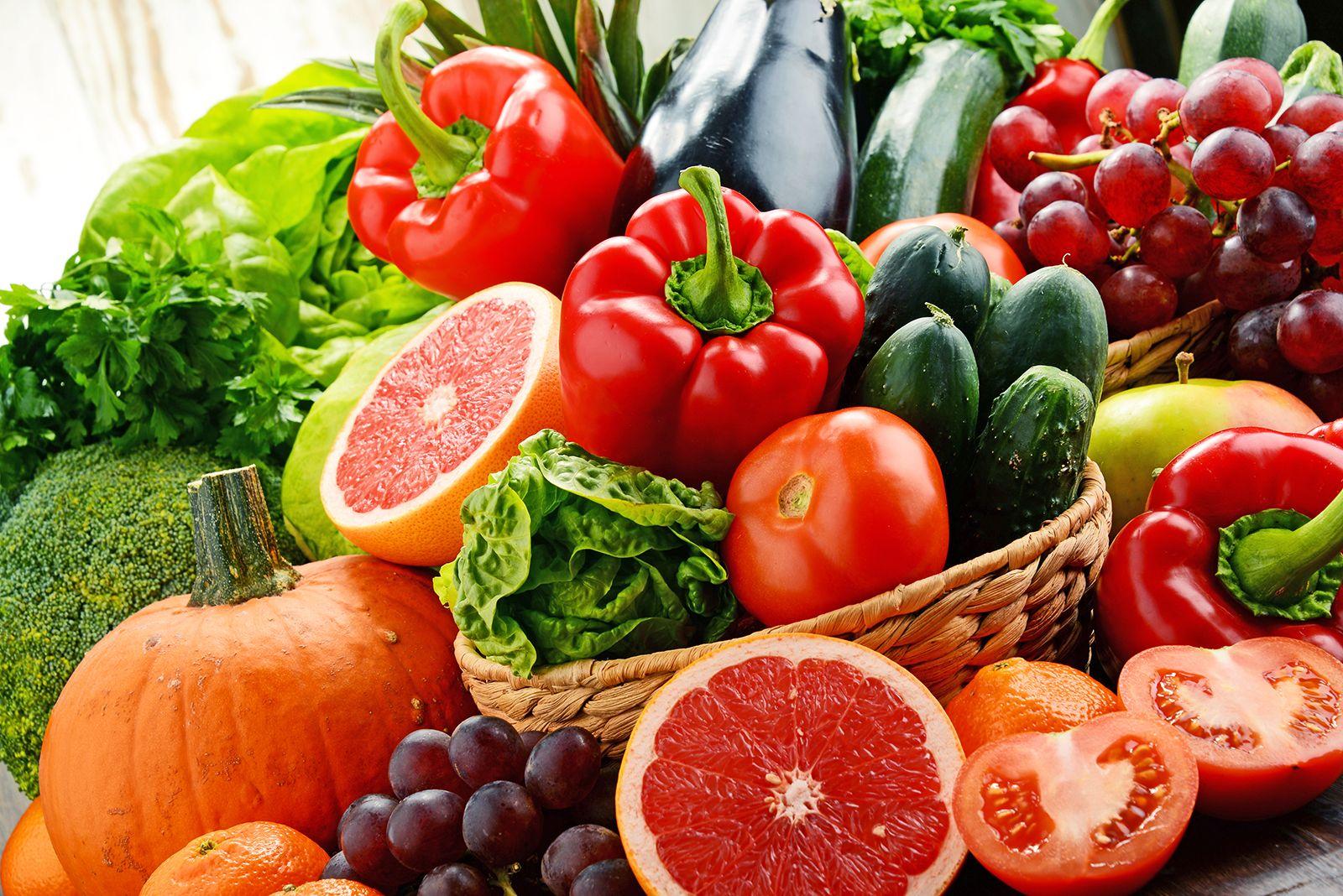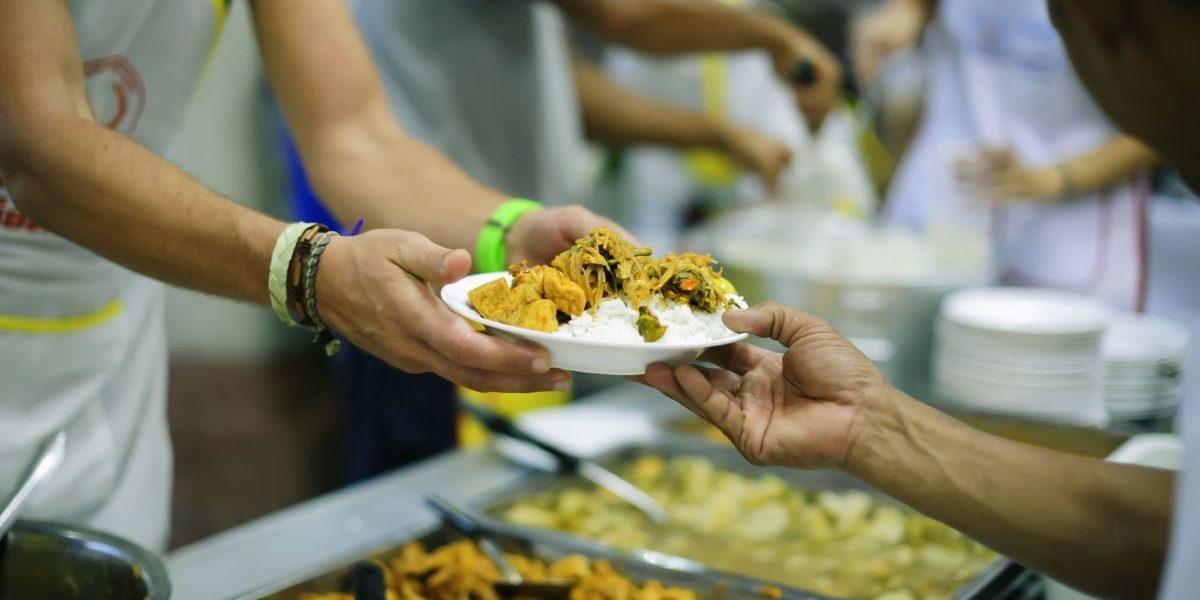Table of Contents
- Understanding the Role of a Food Kitchen Volunteer
- Essential Skills and Qualities for Successful Volunteers
- Impact of Food Kitchen Volunteering on Community Well-being
- How to Get Started as a Food Kitchen Volunteer
- Navigating Challenges and Celebrating Successes in Food Volunteering
- Q&A
- Concluding Remarks


Understanding the Role of a Food Kitchen Volunteer
Volunteering in a food kitchen offers a unique opportunity to directly impact the lives of individuals and families in need. As a volunteer, you contribute to a vital service that ensures everyone has access to nutritious meals, regardless of their circumstances. Your role can vary, including food preparation, serving meals, or organizing donations, creating a dynamic and engaging experience where each day brings new challenges and rewards.
One of the essential elements of being a food kitchen volunteer is working collaboratively with other volunteers and kitchen staff. This collaborative spirit fosters a sense of community and shared purpose. Responsibilities may include:
- Chopping vegetables and preparing ingredients for meals.
- Serving food to those who visit the kitchen.
- Cleaning and maintaining a sanitary kitchen environment.
Moreover, volunteering in a food kitchen not only feeds those in temporary need but also helps build relationships and break down social barriers. Through daily interactions, volunteers can develop empathy and a deeper understanding of the challenges faced by their community members. Many find that these experiences are just as nourishing for the soul as the meals contributed to those who receive them. With every shift, volunteers become a vital part of a larger movement aimed at reducing hunger and fostering kindness.


Essential Skills and Qualities for Successful Volunteers
Volunteering in a food kitchen requires a specific set of skills and qualities that enhance both personal growth and the overall efficiency of the organization. First and foremost, effective communication is crucial. Volunteers must work collaboratively with kitchen staff and fellow volunteers, sharing information about food preparation, safety protocols, and guest needs. This ensures a harmonious environment where everyone can contribute effectively. Active listening is also vital; understanding the requests from supervisors and team members helps create a well-organized operation.
Another essential quality is empathy. Volunteers in food kitchens often interact with individuals in tough situations; showing compassion can make a lasting impact. Workers should have a genuine understanding of the challenges faced by those they serve. This empathy fosters a welcoming atmosphere, encouraging patrons to engage openly and feel cared for. Additionally, a positive attitude is infectious and can uplift the overall mood in a busy kitchen, making the experience enjoyable for everyone involved.
Moreover, technical skills such as food handling and safety knowledge are indispensable. Understanding the basics of food safety, including proper sanitation practices and cooking techniques, ensures the health and well-being of both volunteers and the community. Here’s a quick comparison of notable skills relevant to food kitchen volunteers:
| Skill/Quality | Importance |
|---|---|
| Communication | Facilitates efficient teamwork and clear information flow. |
| Empathy | Builds connections with patrons and encourages trust. |
| Food Safety Knowledge | Ensures safe food handling and a hygienic kitchen environment. |
| Positive Attitude | Enhances the morale of the team and patrons. |


Impact of Food Kitchen Volunteering on Community Well-being
Volunteering at a food kitchen transcends the act of simply serving meals; it fosters a greater sense of community cohesion. When individuals come together to combat hunger, they build connections that extend beyond the walls of the kitchen. As volunteers work alongside one another, they share stories, skills, and laughter, creating bonds that enhance social interactions and support networks within the community. This collective effort can lead to increased trust and understanding, breaking down barriers and promoting inclusivity among diverse populations.
Moreover, food kitchen volunteering plays a pivotal role in improving mental health. Engaging in altruistic activities like serving meals has been shown to reduce stress and boost mood. Volunteers often experience a sense of fulfillment and purpose, which can be particularly beneficial in combating feelings of isolation. This enhancement of emotional well-being not only benefits the volunteers but also positively influences the individuals they serve, creating a ripple effect throughout the community. As such, the act of giving becomes a powerful tool for improving overall mental wellness.
The impact of food kitchen volunteering can be quantified through various community initiatives that spring forth from these efforts. Local organizations often report increased collaboration among different entities, leading to a more robust support system for those in need. The following table highlights some key outcomes associated with food kitchen volunteering:
| Outcome | Details |
|---|---|
| Social Connections | Enhanced relationships among volunteers and beneficiaries. |
| Mental Health Benefits | Reduction in anxiety and increased happiness among participants. |
| Community Support | The emergence of new partnerships and resources for addressing hunger. |


How to Get Started as a Food Kitchen Volunteer
Volunteering at a food kitchen is a rewarding experience that allows you to give back to your community while developing new skills. Before you step into your role, it’s essential to understand the specific needs of the food kitchen you choose to support. Start by researching local food kitchens or community organizations that seek volunteers. This can often be done through their websites or social media channels where they announce upcoming volunteer opportunities.
Once you’ve selected a kitchen, reach out to them for an orientation session or volunteer meeting. During this introductory phase, you’ll learn about their mission, the types of meals they serve, and the various roles available for volunteers. Opportunities may include but are not limited to:
- Preparing meals: Helping to chop vegetables, cook, and assemble meals.
- Serving food: Distributing meals to those in need and ensuring a welcoming environment.
- Cleaning and organizing: Keeping the kitchen tidy and organized to maintain a safe cooking space.
After your orientation, consider committing to a regular schedule to make a consistent impact. Most kitchens appreciate volunteers who can commit to a specific day each week or month. It’s advisable to be flexible with your time and ready to adapt, as the needs may vary from day to day. To facilitate your volunteering, check if the food kitchen has a volunteer management system where you can sign up for shifts and track your hours.


Navigating Challenges and Celebrating Successes in Food Volunteering
Volunteering in food kitchens often comes with its share of challenges that could discourage even the most passionate individuals. Limited resources can restrict the availability of fresh ingredients, requiring creativity and resourcefulness. Additionally, scheduling conflicts among volunteers can lead to inconsistent support, hindering the kitchen’s ability to serve those in need. It’s crucial to establish clear communication channels and a flexible schedule that accommodates volunteers’ commitments while ensuring that service to the community remains uninterrupted.
Despite these hurdles, the triumphs experienced within food volunteering provide a powerful counterbalance. The smile of a recipient receiving a warm meal can make the challenges worthwhile. Furthermore, creating a sense of community not only among volunteers but also with those being served fosters a supportive and inclusive environment. Volunteer recognition events, where stories of impact are shared, can highlight individual contributions and motivate others to join the cause. In essence, recognizing these little victories fuels a sense of purpose that brings everyone closer together.
To illustrate the power of success stories in food volunteering, consider the following table showcasing various impacts made by local food kitchens:
| Impact Area | Successes | Volunteer Contributions |
|---|---|---|
| Meals Served | Over 1,000 meals in a month | 35 active volunteers |
| Community Events | 5 awareness campaigns | Engaged 200 local residents |
| Partnerships | Collaboration with local farms | Provided freshest produce |
These achievements not only shed light on the positive outcomes of dedication and teamwork but also inspire continuous involvement, paving the way for future successes in food volunteering initiatives.
Q&A
Q&A: Becoming a Food Kitchen Volunteer
Q1: What does it mean to be a food kitchen volunteer?A1: Being a food kitchen volunteer involves assisting in the preparation, serving, and distribution of meals to those in need. Volunteers play a crucial role in ensuring that nutritious food reaches individuals who might otherwise go hungry, fostering community spirit and support.Q2: What are the benefits of volunteering at a food kitchen?A2: Volunteering at a food kitchen offers numerous benefits, including the opportunity to give back to the community, make a positive impact on people’s lives, and gain hands-on experience in food service or community work. It also fosters connections with other volunteers and the individuals who benefit from the service.
Q3: Who can volunteer at a food kitchen?A3: Most food kitchens welcome volunteers from all walks of life, including individuals, families, students, and corporate groups. While some kitchens may have specific age requirements or need for background checks, many are eager to include anyone who wants to help and can commit their time.
Q4: What are the typical responsibilities of a food kitchen volunteer?A4: Responsibilities can vary widely depending on the kitchen’s needs. Common tasks include food preparation, serving meals, cleaning and sterilizing kitchen areas, organizing inventory, and sometimes assisting with administrative tasks like data entry or client registration.
Q5: How much time do I need to commit as a food kitchen volunteer?A5: The time commitment can vary based on the kitchen’s needs and your availability. Some kitchens may require a few hours a week, while others might need help for special events or shifts that last several hours. Always check with the food kitchen for their specific volunteering options and needs.
Q6: Do I need any special skills or training to volunteer?A6: Generally, no specialized skills are required to start volunteering at a food kitchen. Most places offer on-the-job training and orientation sessions to help you learn about food safety, preparation, and service. However, skills in cooking, food service, or community outreach can be beneficial.
Q7: What should I wear when volunteering at a food kitchen?A7: Appropriate attire typically includes comfortable clothing that you don’t mind getting messy, closed-toe shoes, and possibly a hairnet or hat if required by the kitchen’s hygiene policies. Some places might also provide aprons for you to wear during your shift.
Q8: How can I find a food kitchen to volunteer at?A8: To find a local food kitchen, consider searching online, checking with community centers, or reaching out to organizations like food banks or churches that often run food kitchens. Social media platforms and local volunteer networks can also provide leads on opportunities in your area.
Q9: What impact does volunteering at a food kitchen have on the community?A9: Volunteers at food kitchens help to alleviate hunger, reduce food waste, and strengthen community bonds. By providing meals and engaging with individuals in need, volunteers create a sense of dignity and hope, contributing to a healthier, more connected environment.
Q10: Can I make a difference by just volunteering a few times?A10: Absolutely! Every hour spent volunteering contributes to the overall mission of the food kitchen. Even a one-time effort can help feed individuals in need and inspire others to get involved. Your impact, no matter how small, can ripple out in significant ways within the community.
This Q&A aims to inform potential volunteers about the enriching experience of food kitchen service and encourage community involvement. Whether you’re looking to make a lasting impact or seeking personal growth, volunteering can be a rewarding way to engage with and uplift those around you.




0 Comments